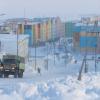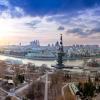
The Russian Academy of Sciences (RAS) is the National Member Organization (NMO) representing Russia’s membership of IIASA. It succeeded the founding member that was the Academy of Sciences of the Union of Soviet Socialist Republics (USSR) following the dissolution of the USSR in 1991.
 © IIASA
© IIASA
IIASA Connect
Are you a member of our Russian regional community? IIASA Connect is our exclusive platform bringing this network together. Join today!
News
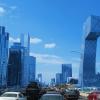
29 November 2023
Embracing ecological perspectives, tools, and models to navigate the digital economy

23 November 2022
What was the true human cost of the pandemic in Russia?

31 January 2022
Forest management increases climate benefits provided by boreal forests
Events
IIASA at the International Conference “Risk Management in the Energy Sector 2021"
Risk Management in Energy Post-COVID-19
Focus
02 October 2023
Feasible futures
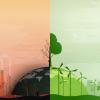
28 November 2022
Improving water-energy access in Central Asia
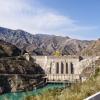
Projects
Publications
Scherbov, S. , Gietel-Basten, S., Ediev, D. , Shulgin, S., & Sanderson, W. (2022). COVID-19 and excess mortality in Russia: Regional estimates of life expectancy losses in 2020 and excess deaths in 2021. PLOS ONE 17 (11) e0275967. 10.1371/journal.pone.0275967. Schweitzer, P. & Povoroznyuk, O. (2022). Infrastructural legacies and post-Soviet transformations in Northern Sakha (Yakutiya), Russia. Journal of Environmental Policy & Planning 24 (3) 297-308. 10.1080/1523908X.2022.2051455. Schenuit, F. (2021). Carbon Dioxide Removal Governance in Practice: Assessing developments in Brazil, China, India and Russia. IIASA YSSP Report. Laxenburg, Austria: IIASA Fadeev, A., Komendantova, N. , Cherepovitsyn, A., Tsvetkova, A., & Paramonov, I. (2021). Methods and priorities for human resource planning in oil and gas projects in Russia and OPEC. OPEC Energy Review 10.1111/opec.12213. Böttcher, K., Paunu, V.-V., Kupiainen, K., Zhizhin, M., Matveev, A., Savolahti, M., Klimont, Z. , Väätäinen, S., Lamberg, H., & Karvosenoja, N. (2021). Black carbon emissions from flaring in Russia in the period 2012-2017. Atmospheric Environment 254 e118390. 10.1016/j.atmosenv.2021.118390. Sheil, D., Nabuurs, G.-J., & Shvidenko, A. (2021). Hopes for Russia’s new forest code. Science 372 (6541) 472-473. 10.1126/science.abi9095.
